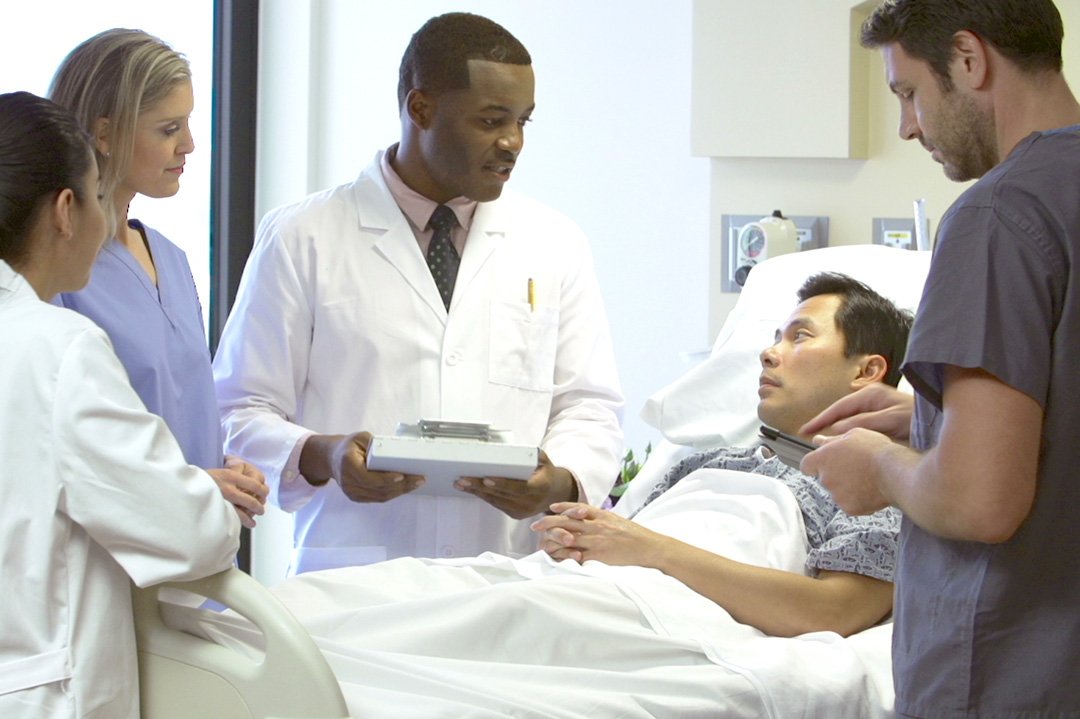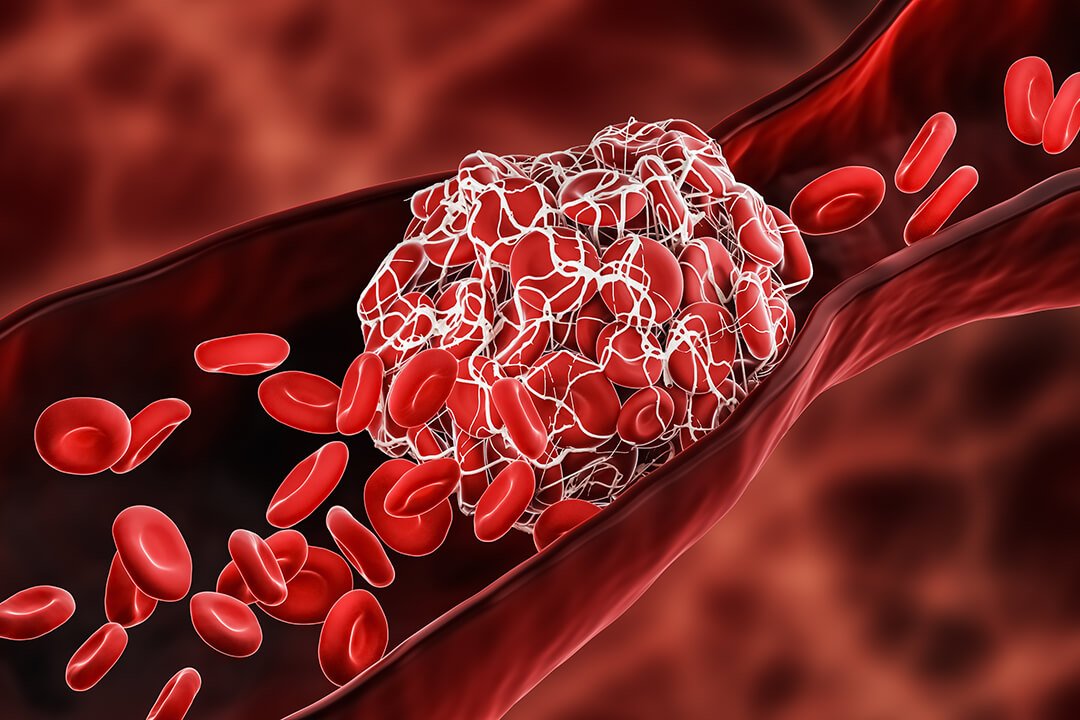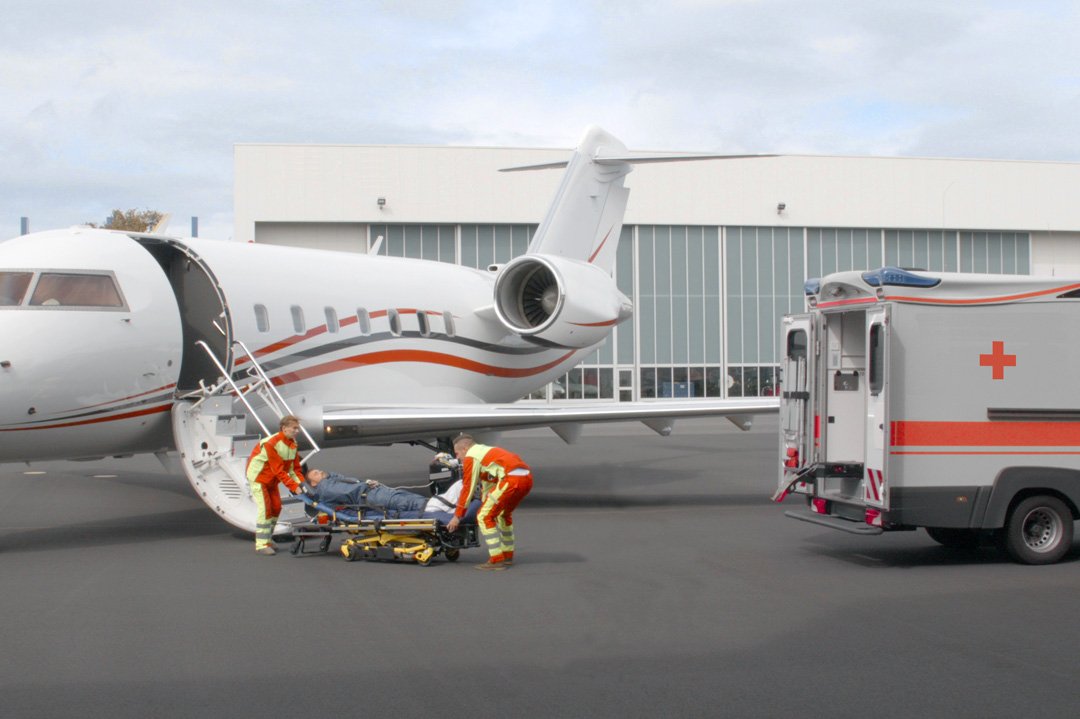Reading Time: 4 minutes
Table of contents
- What is chest (thoracic) surgery?
- Is chest surgery dangerous?
- How long does it take to recover from chest surgery?
- What precautions should you take after chest surgery?
- Why should you avoid flying commercially immediately after chest surgery?
- Air ambulances for post-chest surgery patients
- What are the benefits of our air ambulances?
- When should you travel with a medical escort after chest surgery?
- Contact us for an air ambulance
The treatment of disease and injury near major blood vessels and vital organs such as the lungs and heart is known as chest surgery. Flying after such major surgery poses a number of health risks, which will be discussed in this factsheet.
The key points to remember about flying after chest surgery:
Life happens, and sometimes flying internationally after surgery isn't the most convenient option. Postponing your flight after major chest surgery, for example, may be in your best interests in order to avoid serious health risks like deep vein thrombosis. If your flight cannot be rescheduled and you require immediate travel following surgery, consult with your doctor and do not hesitate to contact one of our agents. They will advise you on your air ambulance options and, in less complex cases, may recommend a medical escort.
What is chest (thoracic) surgery?
Chest surgery, also known as thoracic surgery, focuses on the organs of the chest but also includes the esophagus, trachea, and chest wall. It may be required at any age for a variety of reasons.
Coronary artery bypass grafting (CABG), the world's most common heart surgery, is the first reason for chest surgery. In the US, approximately 200,000 CABG surgeries are performed each year. Cancer is ranked second, including lung and esophageal cancer. In 2019, over 13,000 lobectomies (the removal of a portion of the lung) were performed in the US. Other conditions that may necessitate thoracic surgery include trauma, gastroesophageal reflux, thoracic outlet syndrome (TOS), hyperhidrosis (excessive sweating), and congenital chest disorders in children.

Is chest surgery dangerous?
Thoracic surgery can be performed using either minimally invasive or open techniques. The vast majority of open thoracic surgeries are serious, especially when multiple cardiopulmonary issues must be addressed. Additionally, your heart and lungs are vital organs that must function properly. Inadvertently damaging one of these organs during the surgery can have long-term consequences or even result in death.
Risks of thoracic surgery include:
- Blood clots
- Heart failure
- Lung collapse
- Abnormal heart rhythms
- Infections, including pneumonia
- Swelling in the lung (pulmonary edema)
How long does it take to recover from chest surgery?
The length of time it takes to recover from thoracic surgery is determined by the procedure. You may only need 3 or 4 days to recover if you had minimally invasive surgery. However, after major thoracic surgery, you may be hospitalized for 1 week and require a month or more to recover completely.
What precautions should you take after chest surgery?
Any procedure that involves an incision and anesthesia carries the risk of complications. You can avoid turning a simple surgical procedure into a major medical crisis by following a few simple dos and don'ts:
- Try to walk every day to improve blood flow and reduce the risk of blood clots, pneumonia, and constipation.
- Getting enough sleep and rest will help you recover. Try sleeping on your back while your chest heals.
- Place a cushion over your incisions when coughing or taking deep breaths. This will support your sternum and alleviate your pain.
- Avoid activities that strain your chest or upper arm muscles for the first 3 months. This includes physically demanding activities such as lifting heavy objects.
- Rebook long-haul flights 10 to 14 days after chest surgery or a CABG to avoid potentially serious health complications.
Why should you avoid flying commercially immediately after chest surgery?
Flying after surgery is associated with an increased risk of abnormal blood clotting. When a clump of blood is not properly dissolved, abnormal blood clotting occurs. It is particularly dangerous when it forms in the deep veins of the legs, arms, torso, and brain. This is known as deep vein thrombosis.

Blood clots can grow in size over time, and smaller fragments can break off and travel through the bloodstream. You could have a heart attack if that piece becomes lodged in your heart, a stroke if it becomes lodged in your brain, or a pulmonary embolism if it becomes lodged in your lungs. The risk of developing a blood clot is especially high in the first 4 weeks after surgery.
Long-haul commercial flights also put post-chest surgery patients at risk of pneumonia, or lung problems such as pneumothorax or a collapsed lung.
Air ambulances for post-chest surgery patients
Medical flights englobe the mobile intensive-care services provided on a flight. Our air ambulances carry all of the latest medical technology and medical equipment required to provide emergency treatment. They also transport a medical team that is tailored to the patient's condition. This may include specialists, nurses, and paramedics.
Throughout the flight, our medical team is solely concerned with the patient's welfare, comfort, and the stabilization or improvement of their medical condition while they are on their way home or to another facility for treatment. The conditions on the plane also provide the patient with more comfort than any other mode of transportation. A sea-level flight, for example, can be planned to minimize breathing difficulties caused by changes in atmospheric pressure within the cabin.
What are the benefits of our air ambulances?
Our courteous and professional coordinators are at your disposal and will oversee every aspect of the patient's medical transfer. They will coordinate the patient's transfer on both ends - departure and arrival locations - if necessary. This means that they will help organize land transfers from the medical facility where patients are currently being treated to the airport so that they can feel completely at ease about returning home (bed-to-bed service).

Because coordinating a transfer in a foreign country can be difficult due to language communication issues, our multilingual agents can assist patients in coordinating with local authorities and medical institutions.
Our air ambulances can pick up patients from virtually anywhere in the world and fly them to where they need to be in the shortest amount of time possible.
We are completely transparent while organizing the air ambulance flight, with no hidden charges.
When should you travel with a medical escort after chest surgery?
In addition to our international medical flights, we provide commercial medical escorts. If you require simple assistance while traveling, a medical escort provides the medical tools, medication, and anything else you may require for a safe flight. To ensure the patient's comfort and privacy, a stretcher (if necessary) and a privacy curtain can be provided on the commercial flight.
Our medical escorts are trained professionals who will work with you throughout your trip. Flying with a medical escort after surgery means that we will handle all ground arrangements (if an ambulance is required), book the flight(s), and secure all necessary equipment and medications. We can also handle minor details such as check-in, tickets, luggage handling and checking, and wheelchair security. In order to better serve your needs, we can also contact your doctor to obtain a health report and history.
Contact us for an air ambulance
Contact us if you need to travel but are unable to do so commercially or are concerned about potential complications that may occur mid-flight. We have a team of aviation experts ready to advise you on the best solution based on your requirements and begin planning your medical flight.
Get in touch now